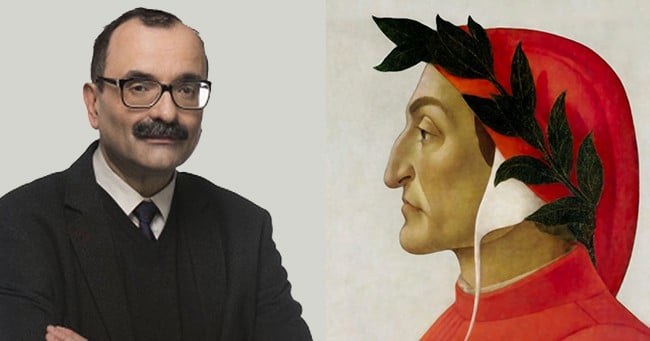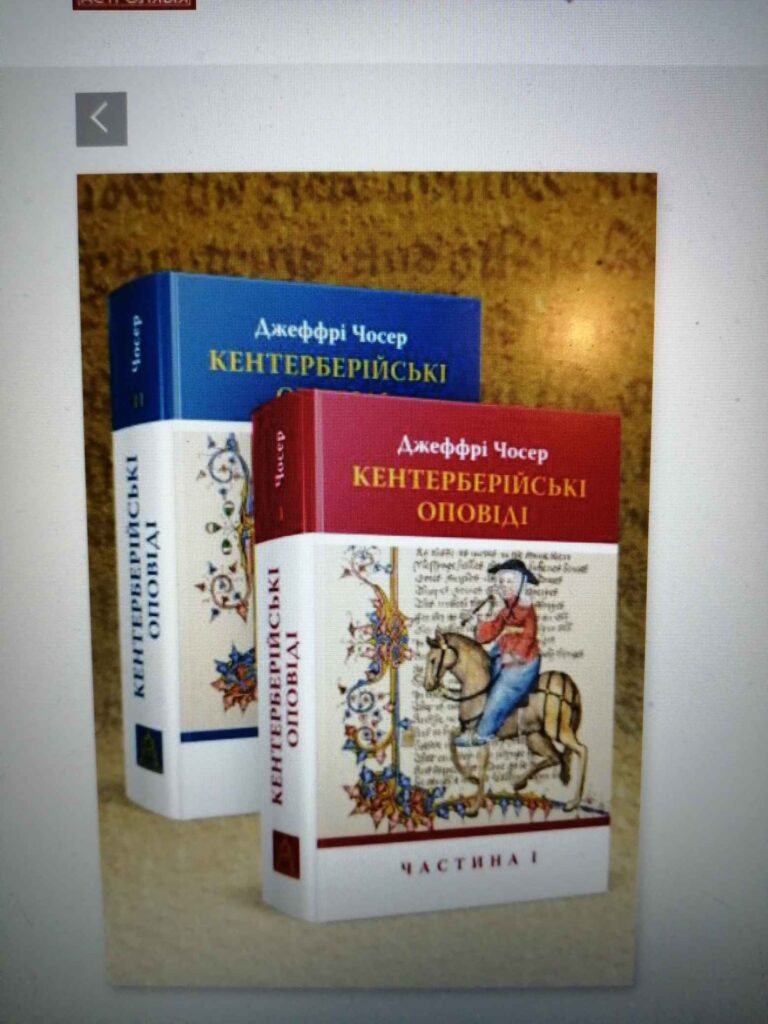How impoverished the world would be in our imagination if there were no translators in it! We congratulate our permanent author and member of the editorial board of Svit newspaper, physicist, writer, translator, professor of Taras Shevchenko Kyiv National University Maksym Strikha on awarding him one of the most honorable translation prizes named after Hryhoriy Kochur for his Ukrainian translation of Canterbury Tales written by Geoffrey Chaucer.

“AND IF WE ARE WORTH SOMETHING, IT’S BECAUSE HRYHORIY KOCHUR WAS IN FRONT OF US…”
According to the official statement, the members of the Committee, who were thoroughly acquainted with all the works, unanimously by open ballot called meritable the Ukrainian translation of G. Chaucer’s “Canterbury Tales. Parts I-II” made by Maksym Strikha and published by “Astroliabia”.
The award is usually presented on Hryhoriy Kochur’s birthday on November 17. The Committee did not depart from the tradition this time either, however, the ceremony took place online, so the diploma of the laureate was demonstrated that day only on the screen.

In his acceptance speech, Maksym Strikha thanked first of all Geoffrey Chaucer, who wrote this wonderful book more than 600 years ago, which is still read with great attention and interest, as well as Ukrainian translators who still hardly took it, and therefore left it to him to translate…
Geoffrey Chaucer’s poetic short stories were written in the late fourteenth century, it is a collection of 24 stories (although Chaucer conceived as many as 120). Pilgrims who went to venerate the relics of St. Thomas Beckett in Canterbury told their stories. Hence the name. The stories in Ukrainian are collected in two volumes, each of which includes 528 pages. The book was published by the Lviv publishing house Astroliabia in 2019. But, despite the considerable volume and ancient times described in it, it is read in one breath, and in a year and a half the second edition came out. The book owes this, primarily, to Geoffrey Chaucer, but also to its translation by Maksym Striha, who conveys all the subtleties and peculiarities of the author’s writing air, his style, humor and realities of the time.
There are not many translation awards in Ukraine. The Hryhoriy Kochur Literary Prize is awarded for the best Ukrainian translations of outstanding works of world poetry and significant translation studies in the field of Ukrainian literary translation.
In fact, Maksym Strikha could well claim this award even for the other component: his monograph “Ukrainian Translation and Translators: Between Literature and Nation-Building”, published in 2020, is one of those outlined above. However, the translation of the Canterbury Tales, according to Maksym Strikha, “probably the last great text of the European canon, which has not been translated into Ukrainian yet”, was called a unique wholehearted work due to the scale of the project and the filigree of the translation. It can be compared only to Strikha’s translation of Dante Alighieri’s Italian poem “The Divine Comedy” (also published by “Astroliabia”), for which Maksym Strikha received Maksym Rylsky Prize of the Cabinet of Ministers of Ukraine in 2015.
At the same time, this award is special for the laureate: it is named after his teacher, Hryhoriy Kochur, under whom the actual laureate studied and with whom he maintained close contacts during the last decade of Kochur’s life: from 1985 to 1994.
Therefore, Maksym Strikha was especially grateful to Hryhoriy Kochur, a brilliant translator and intellectual, a surprisingly intelligent and modest person, a follower of the neoclassical tradition, a student of Mykola Zerov, who “was proficient in Ukrainian in all its registers.” “He was a unique linguist, translating from original works in 30 languages, without contractors, he recognized any translation only when he did it himself”…
“Finally, he was an indomitable person”, Maksym Strikha continued, “because what he was destined for in his life, few would have endured.”
Recalling his meetings and conversations with Hryhoriy Kochur, Strikha shows a thin book of camp poems “Intin Notebook”; Hryhoriy Kochur presented it to him with the caption: “To Maksym Strikha from a beginning amateur”. “There’s more behind these words, there is a lot of bitterness and at the same time Kochur’s irony,” Strikha says. “After all, this book was published when he was 81 years old. And before that there were 10 years of Stalinist camps and another 5 years of “freedom” in the polar Inta, a new ban on publishing and even mentioning his name in the 1970s.”
“And if we are worth anything,” says the winner of the Hryhoriy Kochur Prize, “it is because Hryhoriy Kochur existed, and his great friend Mykola Lukash, and Vasyl Mysyk, because there were neoclassicists who were Kochur’s teachers, and Starytsky and Kulish were before them… So today we have something to be proud of, and we have a great responsibility because we continue their work.”
The members of the Award Committee headed by the First Deputy Minister of Culture and Information Policy Rostyslav Karandieiev warmly greeted Maksym Strikha.
Director of the writer’s literary museum Maria Kochur expressed gratitude for the memory of the teacher and constant care and assistance in preparing for publication of papers by Hryhoriy Kochur, his epistolary legacy (correspondence with Maksym and Bohdan Rylsky, Mykola Lukash).
Larysa OSTROLUTSKA
Svit newspaper, № 45 – 46, December 2021
